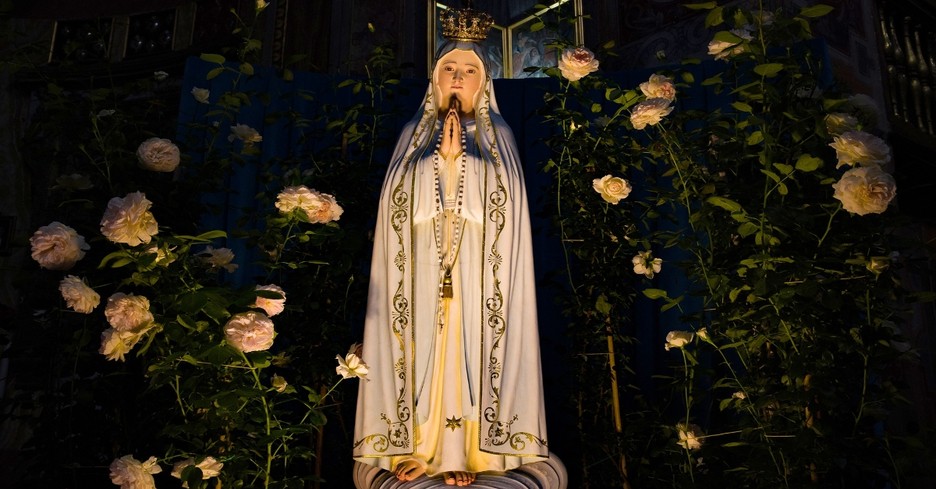
Declaration of Immaculate Conception
Pope Pius IX declared the Immaculate Conception of Mary an article of faith on this day, December 8, 1854. According to his pronouncement in Ineffabilis Deus, Mary was given the grace to be sinless at the instant of her conception. Sin was shut out of her. The teaching was controversial among Christians at large. Neither Protestant nor Orthodox accepts it.
In general, Christians insist that any major doctrine must be clearly backed up by some Scripture. Catholics require the same. Yet, as the Catholic Encyclopedia admits: "No direct or categorical and stringent proof of the dogma can be brought forward from Scripture." Edward O'Connor, compiling a massive defense of the belief went even further, acknowledging that the idea was not even a tradition of the early church, coming to the fore about only 1100 AD.
Scriptural Evidence of Immaculate Conception
According to O'Connor, the doctrine of the Immaculate Conception was "handicapped by the lack of any clear Scriptural evidence (or, even...any explicit patristic tradition) in its favor, but it even seemed to go counter to the clear teaching of St. Paul...and Christ's own declaration..."
What is more, many of the greatest fathers of the church and its "doctors," explicitly rejected the idea. How could this belief be accepted when it is not taught in Scripture, had at best a weak early tradition, and was explicitly rejected by theologians of the highest rank?
Was the "Mother of God" Sinless?
Although the early church recognized that God chose Mary for a special place in His plan, countless sources both east and west show that she was not considered sinless. However, in the eastern part of the church, some theologians did write of Mary as pure and holy. Mary was called the "Mother of God" and, in passing, some remarked that she had special flawless holiness. Gradually, in the western church, this belief became the assertion of an unfallen nature.
By the twelfth century, the idea of the Immaculate Conception of Mary was widely accepted in the Roman Church, although there was still strong opposition to the belief. St. Thomas Aquinas especially objected that "If the soul of the Blessed Virgin had never been stained with the contagion of original sin, this would have detracted from Christ's dignity as the savior of all men." Many others stood with him. Thomas recognized that if Mary were without sin, she would not need a Savior; the Bible would then be wrong in saying Jesus was the Savior of all men and that "all have sinned and fall short of the glory of God; there is none righteous, no not one."
The thirteenth-century philosopher Duns Scotus tried to sidestep Aquinas' argument by saying that Mary's freedom from sin was a privilege given to her on the basis of Christ's future merits.
Both before and after the dogma was made binding on faithful Catholics by Pius to be "firmly and constantly... believed by all the faithful," theologians sought for new arguments to justify the teaching. Theology is a progressive science, they said. The church comes to understand some mysteries only after pondering them a long time in its heart. Mary was compared to a second Eve, sinless before her fall. How could Christ be born of flesh that was at some point in time under Satan's dominion? they asked. They argued that just as the Holy Spirit set John the Baptist apart while he was still in the womb, so Mary, to an even greater degree was set apart. However, other theologians replied to all these arguments and raised other objections--for instance is it credible that Mary, a mere mortal, withstood all temptation when even Christ, the living Son of God, could overcome the gravest only by sweating blood?
Bibliography:
- Adapted from an earlier Christian History Institute story.
- Bell, Mrs. Arthur. Saints in Christian Art. London: George Bell, 1901 - 1904. Source of the image.
- Holweck, Frederick G. "Immaculate Conception." The Catholic Encyclopedia. New York: Robert Appleton, 1914.
- O'Connor, Edward Dennis. The Dogma of the Immaculate Conception. Notre Dame, Indiana: University of Notre Dame Press, 1958.
- Sugrue, Francis. Popes in the Modern World. New York: Thomas Y. Crowell, 1961.
Last updated September 2020


